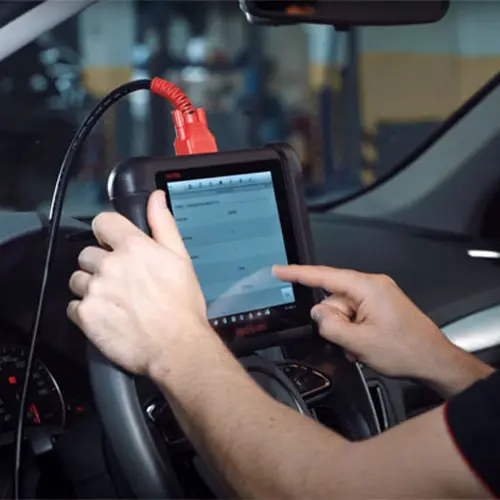5 Killer Quora Answers To Broken Key Repair
페이지 정보
작성자 Clifton 작성일 25-07-21 19:47 조회 6 댓글 0본문
Broken Key Repair: Solutions for Common Lock Issues
Intro
Keys are essential tools in our every day lives, allowing us to secure our homes, vehicles, and personal belongings. However, they can also break, causing disappointments and inconveniences. Comprehending how to deal with broken key concerns is important for anyone wishing to preserve their locks and make sure access to their home. This article covers numerous aspects of broken key repair, including typical causes, repair techniques, and preventive procedures to prevent future circumstances.

Common Causes of Broken Keys
Keys can break for a number of factors. Comprehending these causes can help in preventing future events:
- Wear and Tear: Over time, keys can wear down due to regular use, resulting in weakened shafts that are more most likely to break.
- Poor Key Design: Keys that are poorly created might do not have structural integrity, making them more prone to breaking under tension.
- Incorrect Key Usage: Using extreme force to turn a key, specifically in a jammed lock, can quickly result in a breakage.
- Ecological Factors: Extreme temperature levels or direct exposure to moisture can deteriorate metal keys, resulting in brittleness.
- Lock Malfunctions: A malfunctioning lock can place undue stress on a key, triggering it to snap throughout operation.
Signs of a Broken Key
Recognizing a broken key often includes obvious signs. Here are some signs:
- Partial insertion into the lock: If the key can not be fully placed or eliminated.
- Unexpected resistance: If the key feels stuck when being turned.
- Visible divides or fractures: Inspecting the key can reveal fractures or breaks in the metal.
- Insufficient engagement: The key might turn less than required to activate the lock.
Techniques for Broken Key Repair
When faced with a broken key, there are numerous techniques to think about for repair. It is vital to select the right one based on your specific scenario.
1. Eliminate the Broken Key
If a key breaks within a lock, the very first action is to get rid of the broken portion:
- Use tweezers or needle-nose pliers: If a piece is protruding of the lock, carefully pull it out.
- Place a key extractor tool: This customized tool can help extract lodged parts better.
| Tool | Finest Used For |
|---|---|
| Tweezers | Shallow extraction |
| Key extractor tool | Deeply lodged key pieces |
| Lubricant spray | Easing extraction of stuck parts |
2. Superglue Method
For circumstances where a key has actually partly broken but is undamaged enough to remain gripped, the superglue method may provide a momentary fix.
- Tidy the broken surfaces thoroughly.
- Apply a thin layer of superglue.
- Hold the pieces together for a few minutes till the glue sets.
Note: This method is not a permanent solution and should be used with caution as the repair can easily stop working under functional stress.
3. Metal Epoxy
For a more robust repair, metal epoxy supplies a more powerful bond than superglue.
- Follow the guidelines on the epoxy product packaging for preparing the adhesive.
- Apply to the broken area and hold till set (usually a few hours).
4. Duplicate the Key
In instances where lock performance is important, developing a duplicate key is typically the very best path:
- Visit a locksmith: Many locksmiths can replicate keys rapidly and effectively.
- Use a key-tracing service: Some locksmiths use tracing techniques to cut an identical key based on the remnants.
5. Lock Replacement
When keys repeatedly break, it may be due to lock problems instead of key stability. In such cases:
- Consult a locksmith to examine the lock's condition.
- Consider changing the lock completely if considerable damage or wear is obvious.
Preventing Key Breakage
Avoiding key breakage is often much better than repair. Here are some practical suggestions:
- Limit force on keys: Always turn keys gently to avoid unneeded tension.
- Routine key examination: Check for wear and change keys showing signs of damage.
- Use a keychain: Prevent excessive flexing by utilizing a tough keychain.
- Lubricate locks: Ensure locks run efficiently to decrease pressure on keys.
- Store keys correctly: Avoid putting type in environments that can cause rust or rust.
FAQs About Broken Key Repair
1. Can I repair a broken key myself?
Yes, you can attempt to repair a broken key yourself using methods like the superglue or metal epoxy strategies. However, these are temporary repairs, and it is recommended to speak with a professional locksmith for a more resilient solution.
2. Is it worth repairing a broken key?
Sometimes, particularly with nostalgic or unique keys, a repair might be worth it. For basic keys, duplication or replacement is usually more reliable and reliable.
3. How can I prevent my keys from breaking?
To avoid breakage, guarantee that keys are not subjected to extreme force, routinely inspect them for wear, and keep locks well-maintained.
4. When should I look for a locksmith's aid?
If you are unable to remove a broken key from a lock or if the lock malfunctions regularly, it's finest to look for a locksmith's know-how.
Broken keys can provide a considerable trouble, however they are workable with the ideal approach. By understanding the common causes and available repair techniques, individuals can react effectively to key damage. Drawing from preventive steps will likewise assist maintain key integrity and performance. Eventually, a proactive technique to key and lock maintenance can considerably lower the frequency of these bothersome concerns.

- 이전글 SuperEasy Methods To Be taught Every little thing About Bisnis
- 다음글 The Insider Secret on Perhiasan Uncovered
댓글목록 0
등록된 댓글이 없습니다.